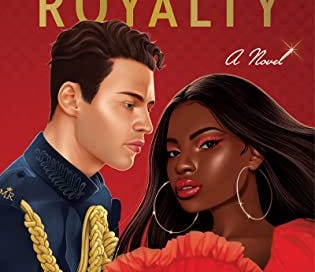'Tick Tock': Essays about older parenthood
Also: "American Royalty" gives a sly nod to Harry and Meghan
We hurried through the quiet clinic, keenly aware that we were late. I scanned the number on every door until I found the correct one. But we couldn’t be in the right place, I thought. A sign on the door included the phrase “advanced maternal age.” I was 34, which didn’t seem at all advanced. I turned to my husband and told him something was wrong. He raised an eyebrow and escorted me into the room, where I learned that because my due date fell in the same month as my 35th birthday, I’d been officially placed in the “advanced maternal age” category.
The contributors to “Tick Tock: Essays on Becoming a Parent After 40,” edited by Vicki Breitbart and Nan Bauer-Maglin, were of even more “advanced” age. They brought home new babies at 41, 43, 45. One writer was shocked to find out at age 50 that the vaguely familiar stirrings in her abdomen were coming from a fourth child. Another writer welcomed a baby, also her fourth, at age 58.
***
As it turned out, my “advanced maternal age” pregnancy was rather harrowing, and we were relieved to end up with a healthy baby. I miscarried the next baby. But my final pregnancy, at age 37, was as smooth as could be. Go figure.
I must confess to a sense of relief and good fortune as I read the essays in “Tick Tock.” We were very lucky in that we conceived readily. Several contributors to “Tick Tock” tell sorrowful tales of searching for egg donors, undergoing multiple rounds of in vitro fertilization, debating whether to adopt or foster and otherwise coming to terms with the strong likelihood that they won’t have a genetic child.
Other contributors point out hurdles that I hadn’t considered because I lack that lived experience. One writer, Laura Davis, agonizes over the parenting years she lost as she struggled to come out:
… I … find myself thinking, still, about how things might have been different if I had lived in a culture that hadn’t convinced me, my parents, and my friends that being gay was so terrible.
What if they (and I) had only needed a day, or a week, or a month to work through my being queer? What if coming out never again meant running out of so much else — out of time, out of eggs, out of years?
The editors of “Tick Tock” have made sure to represent a range of voices, including those of people raised by older parents. As increasing numbers of American parents sport gray hairs and wrinkles, these perspectives bear listening to.
I’m not a huge romance reader, but I do enjoy celebrating Bookstore Romance Day to support independent bookstores. When I made my 2022 purchase, I couldn’t resist also picking up a “blind date” book — a giveaway that the bookstore had wrapped in brown paper, with the briefest of descriptions written in marker.
I finally got around to reading that second book, Tracey Livesay’s “American Royalty.” It’s a steamy story with shades of the interracial, international romance between Prince Harry and Meghan Markle — except Livesay’s Prince Jameson is a reclusive philosophy professor and the American who lures him out of his ivory tower is a rapper who performs under the name Duchess.
Livesay, herself a Black woman married to a white man, has said she wrote “American Royalty” to reflect lesser-told love stories like her and her husband’s. In the wake of the just-enacted Respect for Marriage Act, which guarantees federal recognition of interracial and same-sex marriages, Jameson and Duchess’ romance feels quite relevant and contemporary.




